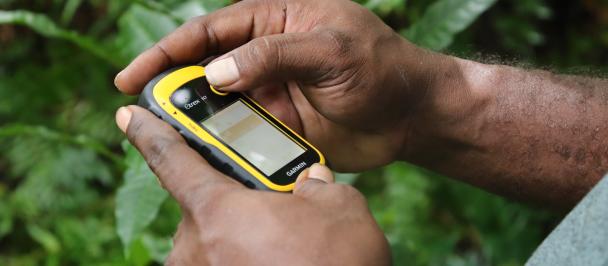Suva Corrections Centre in Fiji (Photo: UNDP)
Kelera’s (not her real name) son is now 22 years old and lives and studies at the University in Hawaii. Separated from her son since he was five years old, Kelera has not seen his face in years. She has never forgotten his smile, and her only hope was to see him again while she is serving a life sentence.
Her wish came true in April when, as a result of the new video conferencing facilities installed at the Suva Women’s Corrections Centre in Fiji, Kelera was able to see her son again for the first time in 17 years. She got to see what a healthy and bright man he had grown up to be. It was a very happy, emotional reunion.
The video conferencing facilities were provided through the Fiji Access to Justice Project funded by the European Union (EU) and implemented by the United Nations Development Programme (UNDP) in partnership with the Judicial Department of Fiji.
Kelera and her son now meet regularly online using the video conferencing facilities set up at the Corrections Centre. (Photo: UNDP)
The project supported the Fiji Corrections Service (FCS) in setting up the remote conferencing facilities through the provision of laptop computers and data packages to equip corrections facilities around the country. The support was provided as an immediate response to the challenge posed by the state restrictions to prevent the spread of the COVID-19.
Prisons around the globe have been particularly challenged by the COVID-19 pandemic due to the high risk that the infection can spread quickly through the densely populated prisons. To try and stop the virus from entering the prisons in the first place, many countries imposed restrictions on contact, visitation, and representation in Court to protect both inmates and prison officers from the virus. The additional restrictions have increased tension in prisons around the world. In some other countries, such measures have led to discontent, unrest, breakouts and riots.
In Fiji, the government has been vigilant in its management of the pandemic within the country to prevent further spread and control the pandemic as much as possible. While the government successfully contained all COVID-19 cases and has now moved to the recovery phase, corrections centres across Fiji remain closed to visitors, including legal counsel, family and friends to protect the prisons from the potential risks, while the courts have returned to normal operations.
To address this challenge, and ensure certain prisoners’ rights are upheld in Fiji, FCS sought to establish video conferencing facilities to enable inmates to have ‘face-to-face’ meetings with their lawyers and visitation time with their families.
FCS Commissioner Commander Francis Kean said, “The FCS staff have been working hard to ensure the minimum standards for the treatment of prisoners – the Nelson Mandela Rules – are upheld while taking measures to protect the health and safety of inmates and officers. This technology made it possible to balance them.”
In December 2015, the UN General Assembly adopted the revised rules as the ‘United Nations Standard Minimum Rules for the Treatment of Prisoners’, known as ‘the Nelson Mandela Rules’ to honour the legacy of the late President of South Africa, Nelson Rolihlahla Mandela.
“I am able to see how he is and has been, what he wears, and I can see how he is feeling through his face and gestures through the monitor. This is a totally different experience from talking to him on the phone,” Kelera said with excitement. Her son still cannot travel to Fiji to visit his mother in person due to the international travel restrictions imposed by the government, but they now meet regularly through the video conferencing facilities.
‘The Nelson Mandela Rules’ include that prisoners shall be allowed to receive visits from his/her legal adviser, and shall be allowed under necessary supervision to communicate with their family and reputable friends at regular intervals, both by correspondence and by receiving visits.
The Fiji Access to Justice Project supports access to justice, in particular for impoverished and vulnerable groups. It does so by empowering people to access their legal rights and services, strengthening key justice institutions to deliver improved services, and strengthening the capacity of CSOs to deliver justice accompaniment services, with a special focus on supporting persons with disabilities and survivors of sexual and gender-based violence.
The project aims to contribute to advancing Fiji’s Sustainable Development Goals with the focus on Goal 16: Peace, Justice and Strong Institutions.

 Locations
Locations





